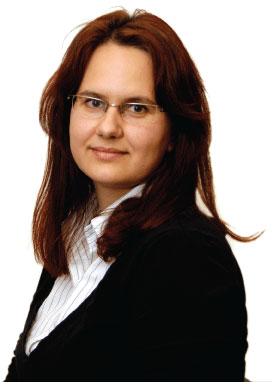 I grew up in Romania during the years of the communist regime imposed on the country after the Second World War. Priests and other representatives of the country's political and cultural elite were persecuted during the years of communist rule. Until its demise in 1989, the regime continued to imprison and even kill people it considered its opponents.
I grew up in Romania during the years of the communist regime imposed on the country after the Second World War. Priests and other representatives of the country's political and cultural elite were persecuted during the years of communist rule. Until its demise in 1989, the regime continued to imprison and even kill people it considered its opponents.
Internalized Christianity
Officially, faith and religion were discouraged by the communists, but Christianity never disappeared. After centuries of faithfulness, it had become intertwined with the country's culture. Romanians continued to believe but they were discreet about it. With the secret police constantly vigilant and a web of informers throughout the country to be wary of, people only shared their faith when they were surrounded by family members, if at that.
My generation, like that of my parents', was not taught religion in school, and not openly and formally introduced to Christianity as part of our upbringing. We received a basic religious education at home, more often than not, though, in the absence of Bibles.
So while I was baptized at birth, my knowledge of God and Jesus was simple, and my knowledge of people and events from the Bible, like Noah and the Flood, was even more basic. At home, the emphasis was on how you lived your life, believing in God and paying attention to what you did and how you treated others. I'd describe it as internalized Christianity.
Looking back, I realize that I was aware of God's presence around me then though I couldn't recognize it. I made choices using a moral compass—I knew what was right or wrong—but in terms of having a conscious dialogue with God, that only happened later on.
Inner Transformation
When I was 16, though, I read a book entitled Happiness Diary by Romanian writer Nicolae Steinhardt. In it, he wrote, “When Christ accepts us, He does not make His acceptance dependant on us fulfilling a prerequisite condition. But when we become His, we renounce what is sinful, not out of obligation but because we feel a great shame.” In other words, when we become a Christian, we move away from what is wrong to what is right because we cannot continue to sin in the presence of such a luminous being, Christ.
When I read these words I was taken aback, because I realized that I had been doing that for about two years—modifying my behaviour under the guidance of an inexplicable sense of shame. I realized then that I had become part of something greater than myself, something interesting and exciting. I can still remember the sense of wonder I felt at finding myself in the middle of a story that was already unfolding.
Over the years, I came to understand that becoming and being a Christian is about going through a process of inner transformation. It is a process that is guided by God, has stages and, in my case, happened and continues to happen over time—not in a day, and not in one moment. But that day, I understood that something had begun. And I had been responding to God at an unconscious level.
One Continuous Prayer
From that point on, my unconscious dialogue with God became conscious and intense, continuing the process that had started within my soul long before my mind became aware of it. All of my experiences at home and school and with friends were filtered through a discussion with God—asking questions, getting feedback and trying to figure out how everything fit in my life.
It was not so much that my dialogue with God took the form of prayer. For me, there's no separation between life and prayer. I've come to believe that prayer is constant conversation with God. I live life trying to include God in everything I am doing and thinking. And if, by the grace of God, I succeed at doing that in the future, then my life will have been one continuous prayer.









Leave a Comment